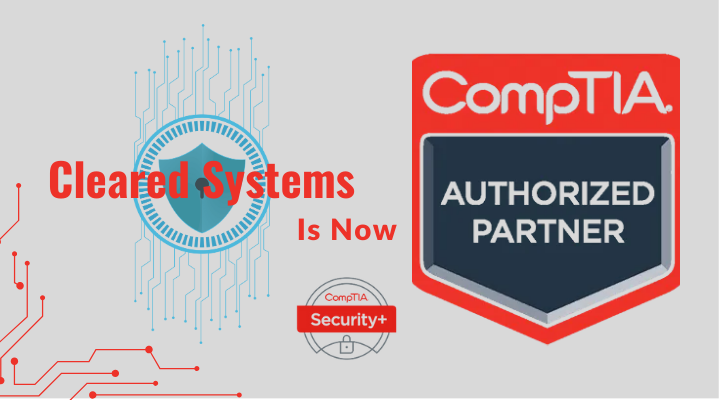Microsoft AIP: Overcoming Data Labeling and Classification Challenges
A defense tech manufacturer, known for cutting-edge tech, faced data security challenges due to evolving landscapes and regulations. Handling daily sensitive information, including CUI and ITAR data crucial for national security, required accurate labeling. Manual labeling was time-consuming and error-prone due to data volume and complexity, exacerbated by a lack of standardization leading to inconsistencies. Recognizing the severity, the manufacturer sought a robust solution. Microsoft AIP, a cutting-edge tool, emerged to ensure accurate labeling and seamless integration with existing infrastructure. With the help of Cleared Systems, the manufacturer deployed AIP across systems and cloud infrastructure, aiming to automate and standardize the labeling process. The partnership leveraged expertise in configuring and deploying AIP, ensuring a smooth integration with minimal disruption.
Objectives
- To automate the labeling process for efficiency and accuracy: Implement a solution that could handle the volume and complexity of the data, making the labeling process less time-consuming and reducing the likelihood of errors.
- To standardize the labeling system for consistency: Develop a standardized system for labeling CUI and ITAR-controlled technical data to eliminate inconsistencies and ensure all data is correctly marked.
- To ensure regulatory compliance in data handling: Ensure that the labeling solution is in full compliance with regulatory requirements and guidelines like NIST SP 800-171 for handling CUI and ITAR-controlled technical data.
- To integrate the solution seamlessly with existing infrastructure: Deploy a solution that could integrate seamlessly with the manufacturer’s existing infrastructure, causing minimal disruption to their operations.
Challenges
- The sheer volume and intricate nature of the data, including CUI and ITAR-controlled technical data, made manual labeling a daunting and error-prone task.
- The manufacturer’s information systems were Linux-based, meaning the entire infrastructure wasn’t compatible with Microsoft AIP. The manufacturer also had a lot of physical files that had to be digitized and labeled for effective categorization.
- The labeling system was inconsistent and prone to errors, leading to compliance issues and potential fines. This exposed the customer to legal risks and could damage their credibility and reputation in the industry. It also frustrated the manufacturer’s data classification efforts.
- The manual labeling process was time-consuming and labor-intensive, affecting the operational performance and customer satisfaction. This also reduced the manufacturer’s ability to deliver high-quality services on time and within budget.
Solutions
- Cleared Systems configured and deployed Microsoft AIP client across the manufacturer’s information systems and cloud environment. This enabled the automation and standardization of the labeling of CUI and ITAR data across all the contractor’s platforms and devices.
- We provided training and support to the manufacturer’s staff on how to use Microsoft AIP effectively. It helped the staff overcome technical challenges and integrate Microsoft AIP client with their existing infrastructure smoothly.
- Cleared Systems customized the Microsoft AIP labels to align with the specific categories of CUI and ITAR data handled by the manufacturer. This customization ensured a standardized system for labeling, eliminating inconsistencies in data marking. As a result, all sensitive data was correctly and consistently labeled, enhancing data security, regulatory compliance, and effective classification.
- We integrated Microsoft AIP with Microsoft Power Automate, a service that enabled the manufacturer to create automated workflows. This enabled their staff to scan, upload, and label their physical files using Microsoft AIP and OCR, significantly reducing their workloads.
Result
- Improved Labeling Accuracy and Efficiency: The manufacturer achieved accurate and consistent labeling of CUI and ITAR data across all platforms and devices. They reported a 90% reduction in labeling errors and a 75% increase in labeling speed compared to their previous system.
- Improved Data Identification and Classification: The manufacturer was able to identify and classify sensitive data like CUI and ITAR data more effectively using Microsoft AIP’s labeling capabilities. This helped them comply with DFARS requirements and guidelines.
- Enhanced Data Protection and Usage Rights Control: With Microsoft AIP, the manufacturer gained granular control over usage rights and data protection. The Azure Rights Management (RMS) integration allowed for effective management of access and encryption of sensitive CUI and ITAR-controlled data, ensuring that only authorized personnel could access it.
- Effective Tracking and Reporting: Microsoft AIP’s robust reporting and tracking capabilities enabled the manufacturer to monitor data access effectively, detect malicious behaviors, and prevent data misuse. This not only enhanced their security posture but also helped them remain compliant with regulatory requirements.
Share in Social Media
See More Case Studies

Securing Defense Contracts: A DFARS 252.204-7012 Compliance Case Study
Discover how Cleared Systems helped a Federal Contractor successfully achieve DFARS 252.204-7012 compliance by strengthening its cybersecurity posture, giving it a competitive edge when bidding for DoD Contracts.

What is GCC High?
Microsoft 365 Government Community Cloud (GCC) High is a specialized cloud solution tailored for U.S. federal, state, local, tribal, and territorial government organizations, as well as for contractors who hold or process data subject to specific security regulations. In this article, we will explore the features, benefits, and differences between Microsoft 365 GCC High and other Office 365 offerings.

Cleared Systems is Now a CompTIA Authorized Partner!
Is Your Workforce DoD 8570 Ready? The DoD Cyber Workforce Framework (DCWF) mandates that all personnel with access to DoD information systems possess a baseline

Cybersecurity Risk Management: Benefits, Frameworks, Processes & Best Practices
In today’s hyper-connected world, organizations of all sizes operate within a complex digital landscape teeming with opportunities and, unfortunately, vulnerabilities. This interconnectedness reveals one uncomfortable

Navigating the Clouds with Confidence: An Introduction to FedRAMP Compliance
Gone are the days of bulky servers and dusty storage rooms. Cloud technology has revolutionized data management, offering agility, ease of use, scalability, convenience, and
Partner with Us for Compliance & Protection
We’re happy to answer any questions you may have and help you determine which of our services best fit your needs.
Your benefits:
- Client-oriented
- Security
- Compliance
- Peace of mind
- Efficiency
- Trust
What happens next?
Schedule an initial meeting
Arrange a discovery and assessment call
Tailor a proposal and solution
